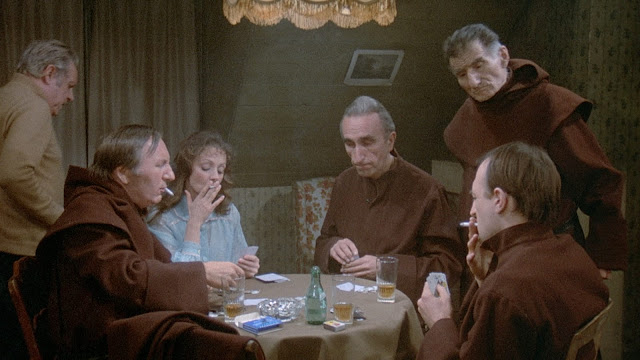The Phantom of Liberty (1974)
Luis Bunuel's "The Phantom of Liberty"
"The Phantom of Liberty" feels like a culmination of Luis Bunuel's filmography. He seems to take his overarching themes from his entire career and smash them into this 1974 French hit. This does not seem surprising, as Bunuel considered this to be his final work whilst making it.
The film is a series of episodes that are only linked by the movement of a character in one scenario into another. The episodes contain surreal or far-fetched incidents, all demonstrating the instability of social order due to the disparate quirks and desires of the individual. Bunuel seems to use circumstantial occurrences to suggest the amorality of the individual in accordance with circumstantial social norms and collective morality. The title of the film seems to suggest that we believe ourselves to live in a 'free society,' but have not reconciled the notion that a free society would be utter chaos. Bunuel references this at the end by alluding to humanity being no different than animals. In a truly 'free' society, we would all become animalistic and debased. Because of this, social norms and collective morality have been installed to combat this chaos with a sense of order. "The Phantom of Liberty" sees to find Bunuel playing at these notions and having a dialogue to himself about the push and pull of individual freedom and collective order.
I feel as though there is so much to talk about in regards to this film, as I found it to be one of Bunuel's finest pieces of art. However, I am circumstantially prevented from going into great detail and require greater reflection at a later date. I will say that despite being the penultimate film of Bunuel's career, "The Phantom of Liberty" felt like a final note from the master, summarizing his career-long themes of individual impulses and how they directly conflict with social and religious morality.




Comments
Post a Comment